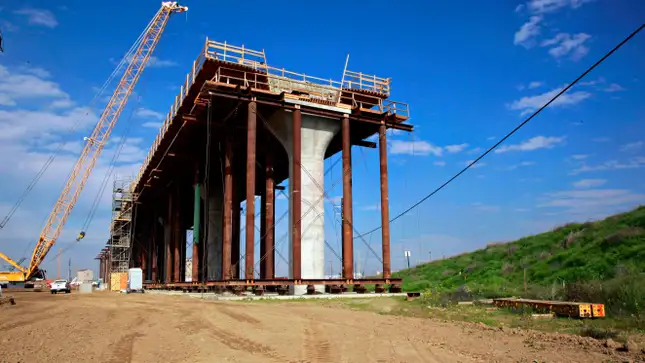Effective communication is paramount in the construction industry for successful project management. However, communication hurdles often arise due to generational differences among team members. Let’s explore the challenges of communication between generations in the construction industry and proposed strategies to improve communication and collaboration within multi-generational teams.
Communication stands as the cornerstone of successful project management in the construction industry. Effective coordination among team members, clear articulation of project goals, and timely dissemination of information are vital for ensuring project success. However, the construction sector is not immune to the challenges posed by generational differences in communication styles and preferences. This article explores the impact of generational disparities on communication within construction project management and offers strategies to overcome these hurdles.
Generational Differences in Communication Styles
In today’s diverse workforce, generational gaps manifest in various aspects, including communication preferences. Millennials and Gen Z, raised in the digital era, often gravitate towards digital communication methods such as email, instant messaging, and project management software. Conversely, Baby Boomers and Gen X tend to favor more traditional communication channels, such as face-to-face meetings and phone calls. These differing preferences can lead to misunderstandings and misinterpretations of messages, hindering effective communication within construction teams.
Challenges of Generational Communication in the Construction Industry
Several challenges arise from generational differences in communication styles within the construction industry:
- Technology Adoption Gap: Younger generations readily embrace new communication technologies, while older counterparts may exhibit resistance, leading to inefficiencies in communication processes.
- Differing Work Values and Priorities: Millennials and Gen Z prioritize flexibility, collaboration, and work-life balance, whereas Baby Boomers and Gen X may place greater emphasis on job security and loyalty, resulting in clashes of expectations.
- Knowledge Transfer Issues: The transfer of expertise and experience from older to younger generations poses challenges, particularly when communication barriers impede effective knowledge sharing.
- Respect and Recognition Disparities: Variances in feedback and acknowledgment expectations between generations can lead to perceptions of inequality and hinder team morale.
We will expand on two of these: the technology gap and respect and recognition disparities….
Let’s discuss the technology gap. The generational disparity in technology adoption within the construction industry can significantly impact communication efficiency and effectiveness. Younger generations, particularly millennials and Gen Z, are digital natives who have grown up immersed in technology. They are quick to embrace new communication tools and platforms, leveraging them to streamline workflows, share information in real-time, and collaborate seamlessly with team members.
Conversely, older generations, including Baby Boomers and Gen X, may exhibit resistance to adopting new communication technologies. This resistance can stem from various factors, including unfamiliarity with emerging technologies, concerns about cybersecurity and privacy, and a preference for more traditional communication methods. As a result, older counterparts may be hesitant to transition away from familiar practices such as face-to-face meetings, phone calls, or printed documents.
This disparity in technology adoption can lead to inefficiencies in communication processes within construction teams. For example, younger team members may rely on project management software or instant messaging platforms to communicate updates and coordinate tasks, while older team members may prefer verbal communication or paper-based documentation. This mismatch in communication preferences can result in delays, misunderstandings, and missed opportunities for collaboration.
Moreover, the resistance to adopting new communication technologies among older generations can hinder the integration of innovative tools and systems that could enhance project efficiency and productivity. For instance, digital collaboration platforms, Building Information Modeling (BIM) software, and mobile applications offer valuable features such as real-time project tracking, remote access to documents, and automated workflows. However, without buy-in from all generations within the construction team, the full potential of these technologies may not be realized.
Now, let’s discuss respect and recognition.
Differing expectations regarding feedback and acknowledgment among different generations within construction teams can significantly impact morale, teamwork, and overall project performance. These variations in expectations often stem from differences in work values, communication styles, and cultural norms prevalent among different age groups.
Younger generations, such as millennials and Gen Z, tend to value frequent feedback, recognition, and validation for their contributions. They have grown up in an era of instant gratification and are accustomed to receiving feedback in real-time, whether through social media interactions, performance reviews, or project evaluations. For them, timely acknowledgment of their efforts serves as motivation and validation of their work ethic and skills.
Conversely, older generations, including Baby Boomers and Gen X, may have different expectations regarding feedback and recognition. They may be more accustomed to a hierarchical organizational structure where feedback is given less frequently and in a more formal manner. For them, acknowledgment of their work may come in the form of promotions, salary increases, or public recognition for significant achievements.
When these differing expectations collide within construction teams, it can lead to perceptions of inequality and hinder team morale in several ways:
- Feelings of Discontent: Younger team members who expect regular feedback and acknowledgment may feel undervalued or unappreciated if their contributions go unnoticed or unacknowledged. This can lead to feelings of discontent and disengagement, impacting their motivation and commitment to the project.
- Loss of Trust: Perceptions of unequal treatment in feedback and acknowledgment can erode trust within the team, leading to strained relationships and communication breakdowns. Team members may become less willing to collaborate or share ideas if they feel their efforts are not valued equally.
- Impact on Retention: A lack of recognition and feedback can contribute to higher turnover rates, particularly among younger employees who seek validation and opportunities for growth. This turnover not only disrupts project continuity but also incurs costs associated with recruitment, onboarding, and training new team members.
- Decreased Productivity: Low morale resulting from perceptions of inequality in feedback and acknowledgment can have a detrimental effect on productivity and project outcomes. When team members feel demotivated or unappreciated, they are less likely to exert their full effort or go above and beyond to meet project goals.
Strategies to Improve Generational Communication in Construction
To mitigate these challenges, construction project managers can implement the following strategies:
- Establish Clear Communication Protocols: Define guidelines for utilizing different communication channels based on the nature and urgency of communication.
- Provide Training on Effective Communication Techniques: Offer workshops or training sessions that address generational communication styles and promote understanding among team members.
- Foster a Culture of Collaboration and Respect: Cultivate an environment where diverse perspectives are valued, and mutual respect is upheld to bridge generational divides.
- Implement Mentorship Programs: Facilitate knowledge transfer by pairing experienced employees with younger counterparts to foster mentorship and skill development.
- Utilize Diverse Communication Channels: Accommodate varying generational preferences by leveraging a mix of communication platforms, including both digital and traditional methods.
- Encourage Open Dialogue: Create avenues for team members to express their ideas, concerns, and feedback openly, fostering a culture of transparency and inclusivity.
Conclusion
Generational differences in communication present significant challenges within the construction industry, impacting project efficiency and team dynamics. Addressing these challenges is imperative for achieving improved project outcomes and fostering a cohesive work environment. By implementing targeted strategies such as clear communication protocols, training initiatives, and mentorship programs, construction firms can bridge the generational communication gap and pave the way for enhanced collaboration and success.





